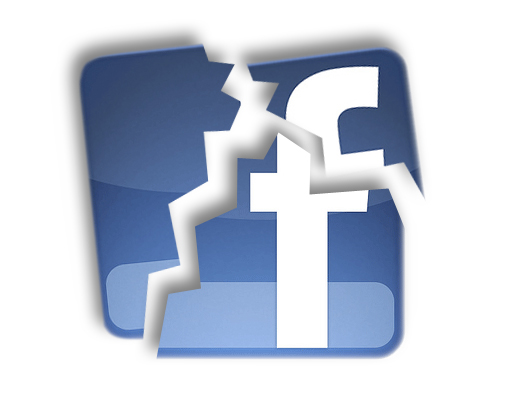Facebook has been with us as a national phenomenon for about a decade now. Chances are you’ve used it to find old classmates, stalk old crushes, and learn more about the news from the least reliable sources possible. Facebook filled a niche for over a billion people who sought some sort of connection in a confusing world. Today Facebook is in trouble, and by this time next year it could be on the verge of disappearing.
There ain’t no such thing as a free lunch.
This simple axiom, put in writing by science fiction writer Robert Heinlein in 1966, describes the core of Facebook’s problems. It costs millions of dollars to maintain the servers that run Facebook. It costs millions more to keep track of bugs and fix security problems. Facebook isn’t cheap, and yet it’s free.
That money has to come from somewhere, and Facebook’s tried a lot of ways to get it. Some have been acceptable, like ads in the news feed. Some haven’t, like letting advertisers game the system to identify hate groups and sell to them. At the heart of it is Facebook’s real, insidious purpose: know all there is to know about you, and sell that information.
Let’s not believe for a second that Facebook hasn’t been doing just that.
Facebook has been providing demographics info to advertisers since they day they started taking ads. They’ve gotten extremely good at figuring out little slices of their membership. Advertisers want that; they want a good return on their investment. I get that. But Facebook seems to have been taking advantage of people’s tendency to overshare their private information and it’s very, very good at figuring out what people are thinking.
Facebook also doesn’t work alone. Have you ever shopped for something online and then you see ads for it everywhere for about a week? Have you noticed that some of the best ads, some of the ones that pop up faster, are on Facebook? It’s common industry practice for little bits of code to stay on your computer when you visit a site. Those are called “cookies” and I think by now everyone has some idea what they are. Facebook exploits those cookies as well as data that comes straight from other web sites to give you an extremely efficient ad experience. That’s the point. That’s what advertisers want, and what they want Facebook to provide.
Facebook has targeted you probably better than any other company ever, except maybe Google. And the thing is, you let them. You let them listen in on every conversation and they did it.
Facebook has massive selection bias.
You know what this means even if you don’t know the term. “Selection bias” is what happens when you think that you’re talking to a random group of people but you’re actually talking to a group of people who you have selected to have something in common with you. It’s why your feed has people who agree with your opinions and your friend, who is on the other side of the political spectrum, has completely different people in their feed.
Humans tend to have selection bias. There is a cultural and evolutionary benefit to grouping ourselves together toward a common goal, and that means common values. However, left to sprout in the vast electronic wasteland of the internet, selection bias gives us all the wrong impression that everyone agrees with us. It makes us more prejudiced instead of opening up new thoughts and opinions.
Facebook didn’t set out to encourage selection bias, but it sure happened anyway. And now, people are finally waking up to it and their blaming Facebook. That may not be fair, but Facebook definitely needs to find some way of addressing the problem.
Increasingly, Facebook is a grey-haired paradise.
Younger folks flock to Instagram and Snapchat, where the messages are even more simplistic. This means that your average Facebook user is getting older and older. While that’s ok for now — baby boomers still exert a lot of buying power — it’s not a good business plan. Generation X has never and will never be large enough to really build a global business plan on, especially if you’re used to boomer-sized numbers. As older folks peel off Facebook naturally, the next generation up isn’t going to support it.
That’s not a problem for the parent company, who also owns Instagram. As far as the service itself though, it probably means there will be an end to facebook.com just as myspace and friendster and other early social networks ended.
Should you dump Facebook?
It’s actually pretty hard to break up with Facebook. The constant stream of satisfaction that comes from a social network is hard to beat, and it’s a direct line into our tribal urges for connection and safety in numbers. Facebook may be angering and frustrating but it’s also comforting and friendly.
Facebook says they will put in more protections to try to help you keep your private stuff private. They say that they’re working hard to help you realize when you’re in a bubble and when you’re being flat out lied to.
I don’t believe them.
I think they’ll try to do those things, but in the end, Facebook today is how it is because advertisers want it that way. Advertisers make money and Facebook is a business. Your news feed has people and stories you’ve selected for yourself. If that becomes less efficient, you’ll just leave.
I don’t know if you can dump Facebook, it’s pretty addictive. I don’t know if you should, because a lot of conversation still takes place there. Truth is I don’t know the solution, but one thing I do know is that there’s a heck of a problem and I don’t know how to fix it.





